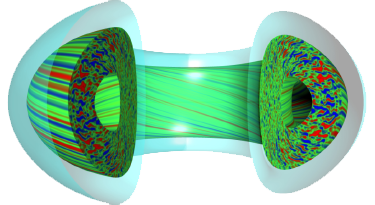Speaker
Description
Causality is a crucial aspect of human understanding and therefore one would expect that it would play a major role in science and particularly in statistical inference. On the contrary, traditional statistical and machine learning tools cannot distinguish between correlation and causality. This lack of discrimination capability can have catastrophic consequences for both understanding and control, particularly in the investigation of complex systems. The field of so called observational causality detection is devoted to refining techniques for the extraction of causal information directly from data. In this contribution, a conceptual framework, based on the concept of intervention, is provided to substantiate the statement that correlation is not causality. An operational definition of causality is also introduced. The conversion of such a conceptual framework into mathematical criteria applicable to times series is covered in detail. The proposed tools can be classified into two major categories: those based on the analysis of the system dynamics in phase space (such as Convergent Cross Mapping and Recurrence Plots) and those relying on the statically and information theoretic properties of the data (such as transfer Entropy and Conditional Mutual Information). The potential of these techniques for the analysis of fusion data, in particular synchronisation experiments, is introduced and discussed.
| Country or International Organisation | Italy |
|---|---|
| Affiliation | Consorzio RFX |

